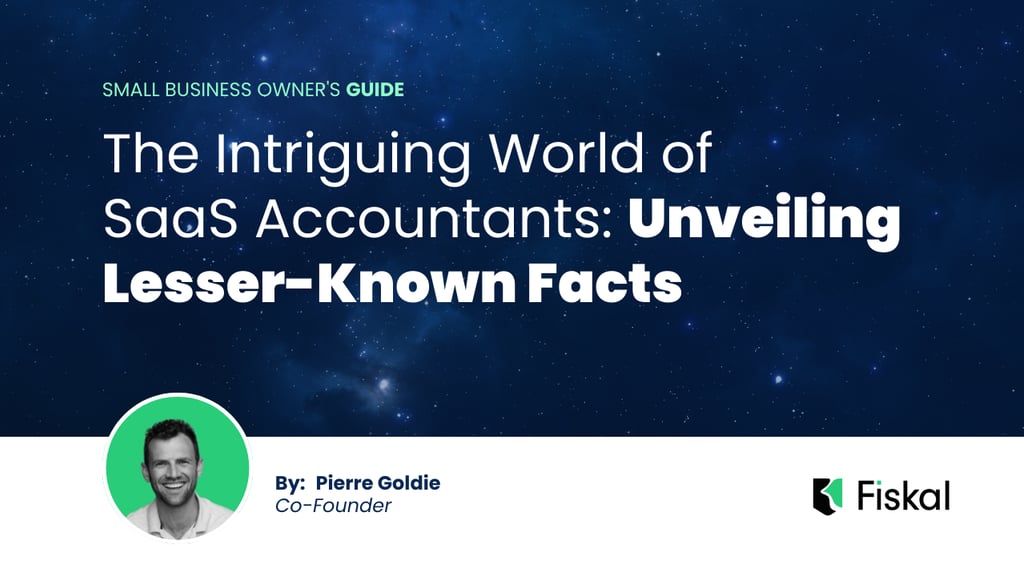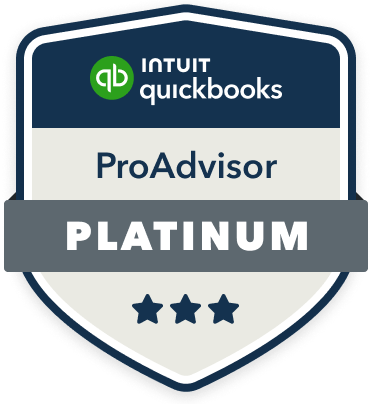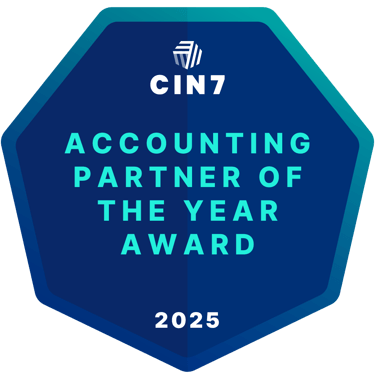The Intriguing World of SaaS Accountants: Unveiling Lesser-Known Facts
Welcome to the intriguing world of SaaS accountants, where numbers meet cloud technology to revolutionize financial management. In this article, we'll unveil some lesser-known facts about these unsung heroes of the accounting world. SaaS (Software as a Service) accountants are a unique breed of financial professionals who harness the power of cloud-based software to streamline financial processes for businesses of all sizes. They are adept at leveraging technology to automate tasks, simplify bookkeeping, and ensure real-time access to vital financial data.
SYSTEMS AND SOFTWARE


In this digital age, SaaS accountants are essential for businesses looking to remain competitive and agile. They offer a range of services, including online bookkeeping, expense tracking, payroll management and financial reporting. With their expertise and advanced tools, they enable businesses to make data-driven decisions, minimize errors and reduce costs.
Join us as we delve into the fascinating world of SaaS accountants and unlock the secrets behind their success. Discover how they are transforming the way businesses manage their finances and learn valuable insights on how your organization can benefit from their services.
The role of SaaS accountants in the modern business landscape
In the ever-evolving digital landscape, the role of SaaS accountants has become increasingly vital for businesses of all sizes. As companies strive to streamline their financial operations and adapt to the rapid pace of technological change, SaaS accountants have emerged as the go-to experts in navigating the complexities of cloud-based financial management.
These financial professionals possess a unique blend of accounting expertise and technological proficiency, enabling them to leverage the power of cloud-based software to transform the way businesses manage their finances. From automating routine tasks to providing real-time financial insights, SaaS accountants play a crucial role in empowering organizations to make data-driven decisions and stay ahead of the curve.
Moreover, the rise of remote work and the need for distributed teams to access financial data seamlessly have further solidified the importance of SaaS accountants. These professionals are adept at integrating cloud-based accounting solutions with other business software, ensuring a seamless flow of financial information and enabling teams to collaborate effectively, regardless of their physical location.
Benefits of using SaaS accountants
Leveraging the expertise of SaaS accountants can unlock a host of benefits for businesses, from improved efficiency to enhanced financial visibility. One of the primary advantages of working with SaaS accountants is the ability to streamline financial processes and reduce the administrative burden on internal teams.
By automating tasks such as invoicing, expense tracking, and payroll management, SaaS accountants help businesses save time and minimize the risk of human error. This, in turn, allows internal teams to focus on their core responsibilities, ultimately driving greater productivity and profitability.
Another significant benefit of working with SaaS accountants is the real-time access to financial data. Cloud-based accounting software integrated with the expertise of these professionals provides businesses with a comprehensive view of their financial health, enabling them to make informed decisions and respond quickly to market changes.
Moreover, SaaS accountants bring a wealth of industry knowledge and best practices to the table, helping businesses stay compliant with ever-evolving tax regulations and financial reporting requirements. This expertise can be particularly valuable for small and medium-sized enterprises that may lack the in-house resources to navigate the complexities of financial management.
Common misconceptions about SaaS accountants
Despite the growing prominence of SaaS accountants, there are still several misconceptions surrounding their role and capabilities. One of the most prevalent myths is that SaaS accountants are primarily focused on technology and lack the traditional accounting expertise required to manage complex financial matters.
However, this couldn't be further from the truth. SaaS accountants are highly trained financial professionals who possess a deep understanding of accounting principles, tax laws and financial reporting standards. Their expertise in leveraging cloud-based software merely enhances their ability to deliver accurate and timely financial information to their clients.
Another common misconception is that SaaS accountants are solely focused on bookkeeping and basic financial tasks. In reality, these professionals offer a wide range of services, including financial planning, budgeting, forecasting, and strategic advisory. By combining their accounting knowledge with technological prowess, SaaS accountants can provide businesses with a comprehensive suite of financial management solutions.
Furthermore, some may believe that working with SaaS accountants means relinquishing control over their financial data. In fact, the opposite is true. Cloud-based accounting software used by SaaS accountants often includes robust security features and data encryption, ensuring the confidentiality and integrity of financial information. Businesses can rest assured that their sensitive data is in safe hands when working with these professionals.
How SaaS accountants differ from traditional accountants
While SaaS accountants and traditional accountants share a common foundation of accounting principles, there are several key differences that set them apart in the modern business landscape. One of the most significant distinctions is the level of technological integration in their work.
SaaS accountants are adept at leveraging cloud-based accounting software and other digital tools to streamline financial processes, automate tasks, and provide real-time financial insights. They are well-versed in the latest accounting software, cloud-based platforms and data analytics tools, allowing them to deliver a more efficient and data-driven approach to financial management.
In contrast, traditional accountants often rely on more conventional methods, such as manual data entry, spreadsheets, and on-premise software. While these approaches have their merits, they can be time-consuming, prone to errors and less agile in responding to the rapidly changing business environment.
Another key difference lies in the scope of services offered. SaaS accountants are typically more versatile, providing a wider range of services beyond traditional accounting tasks. They may offer strategic advisory, financial planning and business consulting, leveraging their technological expertise to help clients make more informed decisions and achieve their financial goals.
Moreover, SaaS accountants are often more proactive in their approach, continuously monitoring their clients' financial data and providing timely insights and recommendations. This allows businesses to stay ahead of potential issues and make adjustments to their financial strategies as needed.
Key features and functionalities of SaaS accounting software
The success of SaaS accountants is closely tied to the capabilities of the cloud-based accounting software they utilize. These platforms are designed to streamline financial processes, enhance collaboration and provide real-time visibility into a business's financial health.
One of the key features of SaaS accounting software is the automation of routine tasks, such as invoicing, expense tracking, and payroll management. By automating these repetitive tasks, SaaS accountants can free up time for more strategic and advisory work, ultimately improving the overall efficiency of financial operations.
Another important functionality of SaaS accounting software is the ability to integrate with other business applications, such as customer relationship management (CRM) systems, e-commerce platforms and project management tools. This seamless integration ensures a unified flow of financial data, enabling SaaS accountants to provide a comprehensive view of a business's financial performance.
Cloud-based accounting software also offers robust reporting and analytics capabilities, allowing SaaS accountants to generate customized financial statements, budgets, and forecasts. These tools empower businesses to make data-driven decisions, identify trends and proactively address financial challenges.
Additionally, SaaS accounting software often includes features that enhance collaboration and remote access, such as real-time data sharing, secure file storage and mobile accessibility. This is particularly valuable in the era of remote work, as it enables distributed teams to access and collaborate on financial information from anywhere, at any time.
Industry trends and developments in SaaS accounting
The SaaS accounting landscape is continuously evolving, with new technologies, trends, and industry developments shaping the way businesses manage their finances. One of the most significant trends in this space is the increasing adoption of artificial intelligence (AI) and machine learning (ML) within accounting software.
AI-powered features, such as automated data entry, intelligent expense categorization and predictive analytics, are revolutionizing the way SaaS accountants approach their work. These technologies not only streamline financial processes but also provide deeper insights and recommendations, empowering businesses to make more informed decisions.
Another emerging trend in the SaaS accounting industry is the growing emphasis on sustainability and environmental, social, and governance (ESG) reporting. As businesses strive to demonstrate their commitment to corporate social responsibility, SaaS accountants are playing a crucial role in developing and implementing robust ESG accounting and reporting frameworks.
Additionally, the rise of blockchain technology has started to influence the SaaS accounting landscape, with the potential to enhance the security, transparency and traceability of financial transactions. SaaS accountants are exploring the integration of blockchain-based solutions to improve the integrity of financial data and streamline audit processes.
Furthermore, the COVID-19 pandemic has accelerated the adoption of cloud-based accounting solutions, as businesses have sought to adapt to the challenges of remote work and distributed teams. SaaS accountants have been at the forefront of this shift, helping organizations transition to cloud-based financial management systems and ensuring seamless collaboration and financial visibility.
Best practices for hiring and working with SaaS accountants
Hiring and working with the right SaaS accountants can be a game-changer for businesses looking to streamline their financial operations and gain a competitive edge. To ensure a successful partnership, it's essential to follow best practices when engaging these professionals.
First and foremost, it's crucial to assess the SaaS accountant's technical expertise and experience in leveraging cloud-based accounting software. Look for professionals who are well-versed in the latest accounting platforms, data integration tools and automation features, as these capabilities will be crucial in driving efficiency and delivering accurate financial insights.
Additionally, consider the SaaS accountant's industry-specific knowledge and their ability to understand the unique financial challenges and requirements of your business. Hiring an accountant with relevant experience in your sector can provide valuable insights and help you navigate industry-specific regulations and best practices.
When working with SaaS accountants, it's essential to establish clear communication channels and set well-defined expectations. Regularly scheduled check-ins, progress updates and collaborative decision-making can help ensure that the partnership is aligned with your business goals and that you are getting the most value from their services.
Furthermore, look for SaaS accountants who are proactive in their approach, continuously monitoring your financial data and providing timely recommendations. These professionals should be able to anticipate potential issues, identify opportunities for optimization and offer strategic guidance to help your business thrive.
Case studies: Success stories of businesses using SaaS accountants
To illustrate the real-world impact of SaaS accountants, let's explore a few case studies of businesses that have reaped the benefits of working with these financial professionals.
Case Study 1: Streamlining Financial Operations for a Growing E-commerce Business
A rapidly expanding e-commerce startup faced the challenge of managing its growing financial complexities, from inventory tracking to invoicing and payroll. By partnering with a team of SaaS accountants, the business was able to implement a cloud-based accounting system that automated routine tasks, provided real-time financial insights and enabled seamless collaboration across distributed teams.
The SaaS accountants not only streamlined the company's financial processes but also offered strategic guidance on optimizing inventory management, forecasting cash flow and identifying opportunities for cost savings. As a result, the e-commerce business was able to scale more efficiently, make data-driven decisions, and focus on its core operations, leading to a significant increase in profitability.
Study 2: Ensuring Compliance and Financial Visibility for a Non-profit Organization
A non-profit organization, with multiple funding streams and complex reporting requirements, struggled to maintain accurate financial records and comply with regulatory standards. By engaging a team of SaaS accountants, the organization was able to implement a cloud-based accounting system that streamlined its bookkeeping, automated financial reporting and provided real-time visibility into its financial health.
The SaaS accountants not only ensured the organization's compliance with relevant regulations but also offered insights on optimizing resource allocation, identifying funding opportunities and improving financial transparency. This enabled the non-profit to focus on its mission, secure additional funding and demonstrate its financial accountability to stakeholders, ultimately enhancing its overall impact and sustainability.
3: Transforming Financial Management for a Small Family-owned Business
A small family-owned business struggled to manage its finances, relying on outdated accounting methods and spreadsheets. By engaging a SaaS accountant, the business was able to implement a cloud-based accounting solution that automated invoicing, expense tracking, and payroll, while also providing valuable financial insights and strategic guidance.
The SaaS accountant's expertise in leveraging cloud-based tools and data analytics allowed the family-owned business to make more informed decisions, identify areas for cost savings and plan for future growth. This transformation not only improved the business's financial management but also freed up time for the owners to focus on their core operations and long-term strategic planning, ultimately leading to increased profitability and sustainability.
Conclusion: Embracing the future of accounting with SaaS accountants
As the business landscape continues to evolve, the role of SaaS accountants has become increasingly vital in helping organizations navigate the complexities of financial management. These financial professionals, armed with a unique blend of accounting expertise and technological proficiency, are transforming the way businesses approach their finances, offering a more efficient, data-driven and strategic approach to financial management.
By leveraging the power of cloud-based accounting software, SaaS accountants are empowering businesses to streamline their financial processes, enhance collaboration and gain real-time visibility into their financial health. From automating routine tasks to providing valuable insights and strategic guidance, these professionals are playing a crucial role in enabling businesses to make informed decisions, adapt to changing market conditions and achieve their financial goals.
As the SaaS accounting landscape continues to evolve, with the integration of emerging technologies like AI, blockchain and ESG reporting, the demand for these specialized financial professionals will only continue to grow. Businesses that embrace the expertise of SaaS accountants will be well-positioned to thrive in the digital age, staying ahead of the curve and unlocking new opportunities for growth and success.
So, if you're a business looking to transform your financial management, it's time to explore the world of SaaS accountants and unlock the full potential of cloud-based accounting solutions. By partnering with these unsung heroes of the accounting world, you can unlock a future of financial efficiency, strategic decision-making and sustainable growth.












